
Michael Graves was an American architect, designer, and educator, and principal of Michael Graves and Associates and Michael Graves Design Group. He was a member of The New York Five and the Memphis Group and a professor of architecture at Princeton University for nearly forty years. Following his own partial paralysis in 2003, Graves became an internationally recognized advocate of health care design.
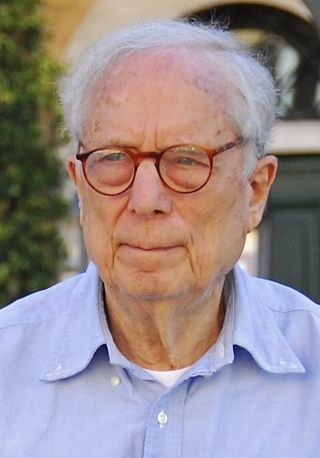
Robert Charles Venturi Jr. was an American architect, founding principal of the firm Venturi, Scott Brown and Associates.

The Spanish Colonial Revival style is an architectural stylistic movement arising in the early 20th century based on the Spanish colonial architecture of the Spanish colonization of the Americas.
Will Bruder is an American architect.

The Miller HullPartnership is an architectural firm based in Seattle, Washington, founded by David Miller and Robert Hull. The firm's major works in the domains of municipal, commercial, and residential architecture reflect a modernist aesthetic and a focus on user needs, geographic context, and ecological sustainability.

Tom Kundig is an American architect and principal in the Seattle-based firm Olson Kundig Architects. He has won numerous professional honors.
Olson Kundig is an American architectural firm based in Seattle, Washington, run by architects Jim Olson and Tom Kundig. Founded by Olson in 1966, the firm’s work has grown to encompass museums, commercial and mixed-use design, exhibit design, interior design, places of worship, and residences, often for art collectors. Olson Kundig was awarded the 2009 AIA Architecture Firm Award from the American Institute of Architects.
DLR Group is an employee-owned integrated design firm providing architecture, engineering, planning, and interior design. Their brand promise is to elevate the human experience through design. A self-described advocate for sustainable design, the firm was an early adopter of the Architecture 2030 Challenge, and an initial signatory to the AIA 2030 Commitment and the China Accord.
Frances Halsband FAIA is an American architect and educator. She is a founder, with Robert Kliment, of Kliment Halsband Architects, a New York City design firm widely recognized for preservation, adaptive reuse and master planning projects. Significant works include The Brown University Framework for Physical Planning, Long Island Railroad Entrance at 34 Street, Visitor Center at Franklin Roosevelt Presidential Library, Mount Sinai Ambulatory Surgery Facility Kyabirwa Uganda. The firm received the AIA Firm Award in 1997 and the New York AIA Medal of Honor in 1998.
Robert Siegel Architects is a New York City-based architecture firm that designs new buildings, renovations and interiors for a wide range of clients and programs. Their public, academic, cultural, commercial and residential projects are located throughout the United States, Korea, China, and Japan. The firms has a won 30 design awards and has appeared in over 50 publications.

Peter Q. Bohlin is an American architect and the winner of the 2010 Gold Medal of the American Institute of Architects. He is a Fellow of the American Institute of Architects (FAIA) and a founding principal of Bohlin Cywinski Jackson, established originally in 1965 as Bohlin Powell in Wilkes-Barre, Pennsylvania.
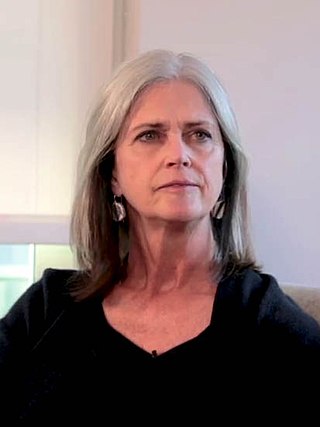
TenBerke is a New York City, based architecture and interior design firm founded and led by Deborah Berke, who concurrently serves as Dean of the Yale School of Architecture.
Robert "Red" Lawrence was an American golf course architect, largely producing courses in the US states of Arizona and New Mexico.
Bartholomew Voorsanger is an American architect.
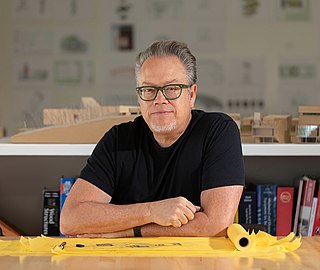
Marlon Blackwell is an American architect and university professor in Arkansas. He is a Fellow of the American Institute of Architects.
Line and Space is an architectural design firm founded in 1978, by Les Wallach, FAIA, and headquartered in Tucson, Arizona. They have completed projects internationally and are known for their ecologically-sound buildings.

Simons Architects (SA) is a fifteen-person architecture, design, and planning firm located in Portland, Maine.
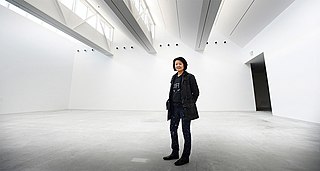
Toshiko Mori is a Japanese architect and the founder and principal of New York–based Toshiko Mori Architect, PLLC and Vision Arc. She is also the Robert P. Hubbard Professor in the Practice of Architecture at the Harvard University Graduate School of Design. In 1995, she became the first female faculty member to receive tenure at the GSD.

Margaret Fulton Spencer (1882–1966) was a painter and early American woman architect who designed and built the architecturally unique dude ranch Las Lomas Estates outside of Tucson, Arizona. She was the second woman to become a member of the American Institute of Architects.
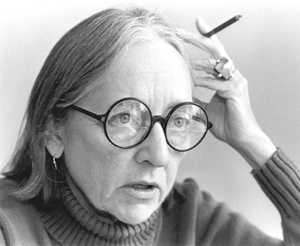
Judith Chafee nee Davidson Bloom (1932–1998) was an American architect known for her work on residential buildings in Arizona and for being a professor of architecture at the University of Arizona. She was a recipient of the National Endowment of the Arts Fellowship to the American Academy in Rome during the middle of her career and was the first woman from Arizona to be named a Fellow of the American Institute of Architects.













